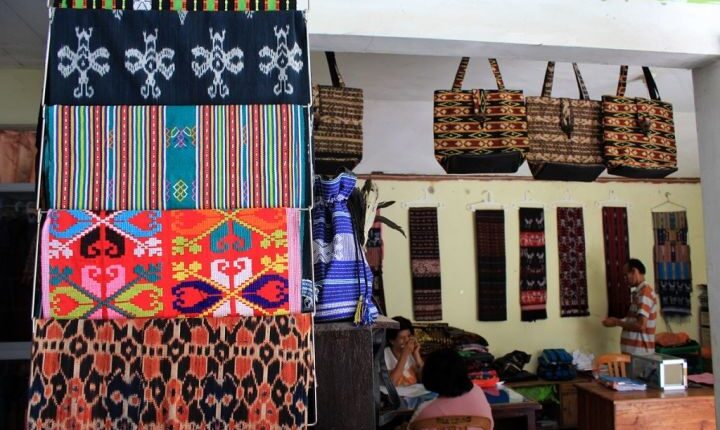MSMEs Become One of the Pillars of Accelerating Economic Equality in the Era of President Prabowo
By Indira Yuliarahmi )*
In the era of President Prabowo Subianto’s leadership, the Micro, Small, and Medium Enterprises (MSMEs) sector has received serious attention as one of the main pillars in accelerating national economic equality. MSMEs, which currently dominate 99 percent of the total business units in Indonesia, are an important driving force in Indonesia’s economic structure. With around 66 million business actors spread throughout the country, the contribution of MSMEs has proven to be able to support the national economy while providing broad job opportunities for the community.
The dominant presence of MSMEs makes this business sector also play an important role in national economic growth, with a contribution to Gross Domestic Product (GDP) reaching 61 percent. Realizing the importance of this sector, the government is committed to implementing various policies that facilitate the development of MSMEs, both through the elimination of bad debts and the provision of access to capital and training.
Minister of SMEs, Maman Abdurrahman, emphasized that women play a central role in this sector, with 70 percent of SME actors being women. The presence of women in the SME sector not only helps economic development, but also supports family resilience and community empowerment as a whole.
Maman also emphasized the importance of strengthening financial management for MSMEs, which is the basic capital to increase the scale of the business. Small entrepreneurs must be disciplined in managing cash flow and funds obtained, both from business income and government assistance, so that businesses can grow sustainably.
Not only focusing on the capital aspect, the government also provides support by eliminating bad debts for MSMEs in strategic sectors such as agriculture, plantations, animal husbandry, fisheries, and maritime.
This step has received appreciation from various parties, including Fahira Idris, a member of the Regional Representative Council of the Republic of Indonesia (DPD RI), who considered the policy as the right step to ease the burden on MSMEs which have been the backbone of the national economy. The policy of writing off receivables is expected to increase the enthusiasm of MSME actors to continue to grow and contribute to the economy. In addition, this step is believed to increase the stability and competitiveness of MSMEs amidst increasingly tight market competition.
President Prabowo Subianto also received support from the Chairman of the Lampung Province Indonesian Farmers Youth Regional Leadership Council, Ahmad Giri Akbar, who appreciated the policy of eliminating bad debts for MSMEs in the agricultural sector. Giri assessed that this policy is a breath of fresh air for MSME actors who have consistently contributed to national economic resilience, especially in facing the global economic crisis. With the elimination of credit, small business actors in strategic sectors can reallocate resources to increase productivity and competitiveness, while also encouraging community welfare in the regions.
The government’s commitment to strengthening MSMEs is also evident from the various training programs provided to small business actors. This training is designed to increase human resource capacity, improve business management, and open wider market access. In addition, the government also encourages digital innovation in MSMEs so that they are able to compete in the era of globalization and rapidly developing technology. Digitalization of MSMEs, especially in terms of marketing and transactions, not only increases operational efficiency but also expands market reach to the international level.
This policy not only provides direct economic benefits, but also has a positive impact on social stability. With the increasing welfare of MSME actors, economic balance between regions in Indonesia is expected to be increasingly realized. The government’s support for the MSME sector is believed to accelerate equitable development and reduce economic disparities, especially in remote areas that have not been optimally reached by large investments. In the long term, this support will reduce economic inequality and push Indonesia towards a fairer economic equality.
On the other hand, sustainable development for MSMEs is needed to improve product quality and strengthen competitiveness in domestic and international markets. To that end, the government continues to invite collaboration from all parties, including the private sector and community organizations, in supporting the development of MSMEs. This collaboration is expected to create an inclusive business ecosystem, where MSMEs can grow together with large business actors in a healthier and more competitive economic environment.
Through policies and programs that focus on strengthening MSMEs, President Prabowo Subianto hopes that the Indonesian economy will become more independent and resilient in facing global challenges. The MSME sector, with its various unique features, has great potential to become the main driver in achieving inclusive economic growth. With the right coaching, mentoring, and financial support, MSMEs will be able to reduce Indonesia’s dependence on the large formal sector and strengthen the economic structure based on the spirit of independence and people’s entrepreneurship.
With this vision, economic equality is expected to be easier to achieve. The policy of siding with MSMEs is a real form of the government’s continued efforts to realize prosperity for all Indonesian people. The MSME sector is not only about the economy, but also about community empowerment and poverty alleviation.
)* The author is an economic observer
